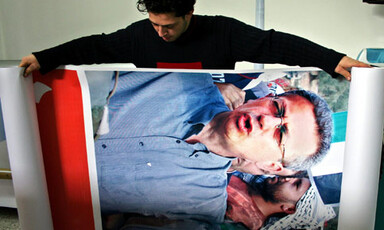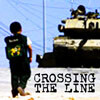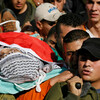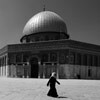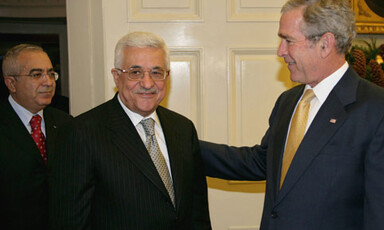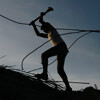
Photostory: The month in pictures, November 2007
17 December 2007
This slideshow is a selection of images from the month of November 2007. The month in pictures is an ongoing feature of the Electronic Intifada. If you have images documenting Palestine, Palestinian life, politics and culture, or of solidarity with Palestine, please email images and captions to photos AT electronicintifada DOT net. Read more about Photostory: The month in pictures, November 2007

